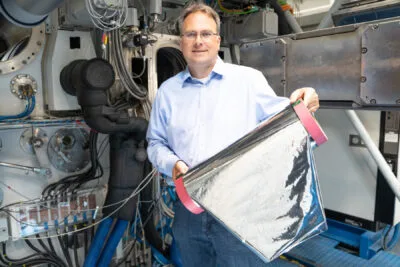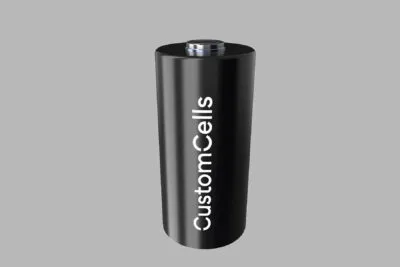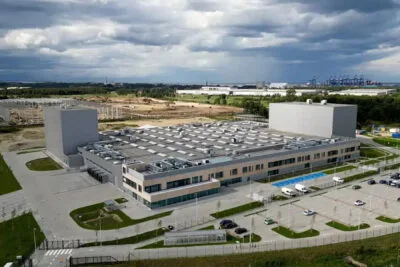VW subsidiary PowerCo is building a 90 GWh battery factory in Canada
Volkswagen has unveiled further details about its battery factory in St Thomas, Canada. It will be PowerCo’s largest cell factory to date, create 3,000 jobs, and produce up to 90 GWh of battery cells per year.
The Volkswagen Group is investing up to €4.8 billion until 2030, which, according to a statement published by the company, underlines its ambitious growth strategy in the North American region. As announced in March, the ground-breaking ceremony is scheduled for 2024, while production should kick off in 2027.
VW does not specify the initial production capacity, nor when the final expansion with the aforementioned 90 GWh will be completed. The investment of €4.8 billion or 7 billion Canadian dollars is planned until 2030, which could be an indication of the company’s schedule.
According to VW, the 90 GWh should be enough for around one million electric vehicles. That means the Wolfsburg-based company expects an average of 90 kWh per vehicle. MEB models such as the VW ID.4 (82 kWh) or the recently presented ID.7 Pro S (91 kWh) are already in that range. The planned electric SUVs and electric pickups of the US brand Scout could also be in the triple-digit range, and other models slightly below.
Batteries are in line with the US Reduction Inflation Act
As in the two confirmed European cell factories in Salzgitter and Sagunt, PowerCo will produce unified cells for the VW Group in St. Thomas – i.e. a prismatic cell with globally uniform dimensions, while the chemistry will vary depending on application and available technology. According to the US Inflation Reduction Act, it not only matters where the batteries are assembled, but also, where the raw materials come from. Both aspects were part of a memorandum of understanding signed by VW and the Canadian government in August 2022. According to media reports, VW is also the first Western carmaker to seek direct stakes in Canadian mines and mine operators.
The cell factory will be built on an area of about 370 acres (150 hectares), which is equivalent to more than 210 football fields. The entire industrial and supplier park amounts to 1,500 acres (600 hectares). The industrial park is located in the heart of the Great Lakes Automotive Corridor and is close to major cities such as Toronto and Detroit. “That gives PowerCo prime access to the regional research and innovation cluster, talented workforce, good transport infrastructure and established supply chains. Furthermore, the cell factory will be supplied with 100 % CO2-free energy,” the statement says.
VW needs batteries for US model offensive
The Volkswagen Group reportedly plans to launch more than 25 new BEV models in the US with its brands by 2030. In addition to ramping up assembly of the VW ID.4 in Chattanooga, Tennessee, the carmaker also plans to expand its Mexican plants in Puebla and Silao to assemble BEVs and possibly BEV components such as electric motors in the second half of the decade. It is the first time that VW has communicated those plans. A few weeks ago, the group confirmed the construction of a plant for its new US electric car brand Scout near Columbia, South Carolina.
Ontario, Canada, also plays an important role in the North American car industry because of its proximity to the US state of Michigan. Ford, Stellantis and GM have component and vehicle plants there, many of which are being or have been converted for electric mobility. Ontario also secured several projects in the battery sector, with Stellantis and LG Energy Solution building a 45-GWh factory in Windsor, for example, and VW partner Umicore building a cathode and precursor materials factory in Loyalist.
Since the factory is an enormous economic win for Ontario and Canada, with 3,000 highly skilled jobs and “tens of thousands more indirect jobs,” Canadian Prime Minister Justin Trudeau was also present at the announcement – as well as the Minister of Innovation, Science and Industry, François-Philippe Champagne.
“When we talk about our made-in-Canada plan, we’re talking about creating good, middle-class jobs now and into the future, we’re talking about clean air for our kids and grandkids, and we’re talking about a strong economy that works for all Canadians,” says Trudeau. “That’s what Volkswagen’s new electric vehicle battery plant in St. Thomas – the largest manufacturing plant in the country once built – is all about. It’s a win for workers, for the community, and for the economy.”
Thomas Schmall, Group Board Member for Group Technology at Volkswagen AG, adds: “North America plays a key role in our global battery strategy. The region will become PowerCo SE’s second pillar beside Europe, with battery cells made in North America for North America. Gigafactory St. Thomas opens the door to a key market for e-mobility and battery cell production.”





0 Comments